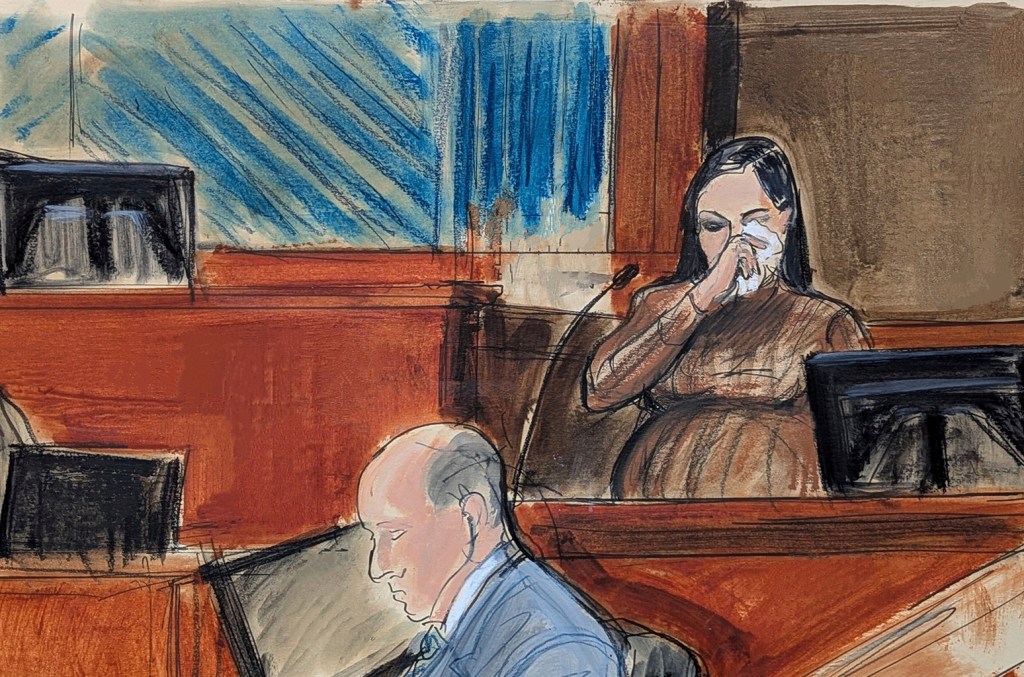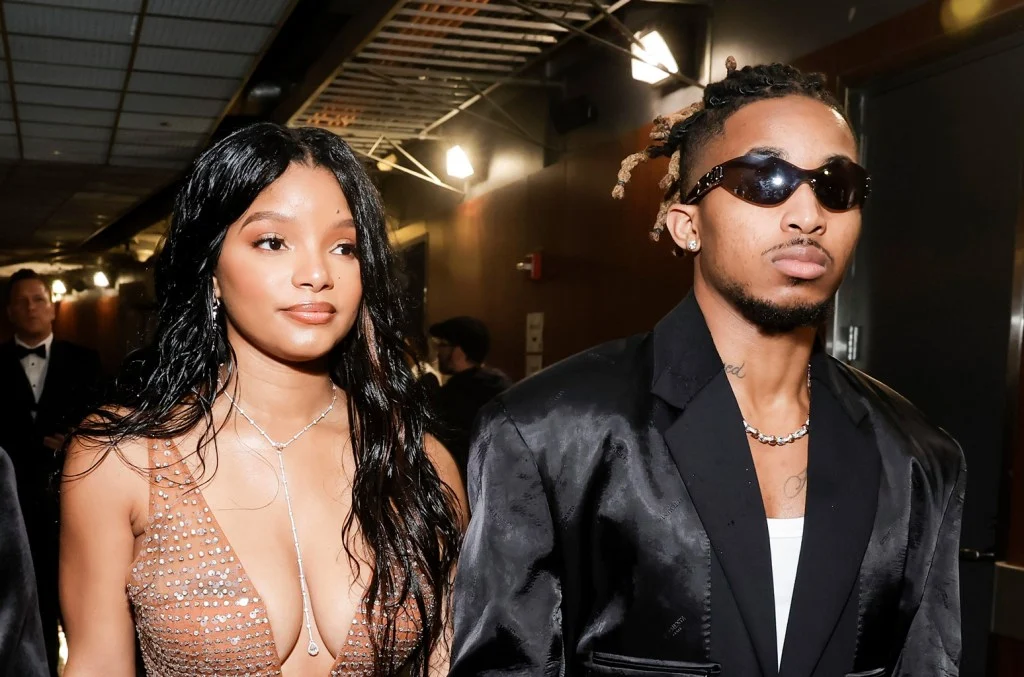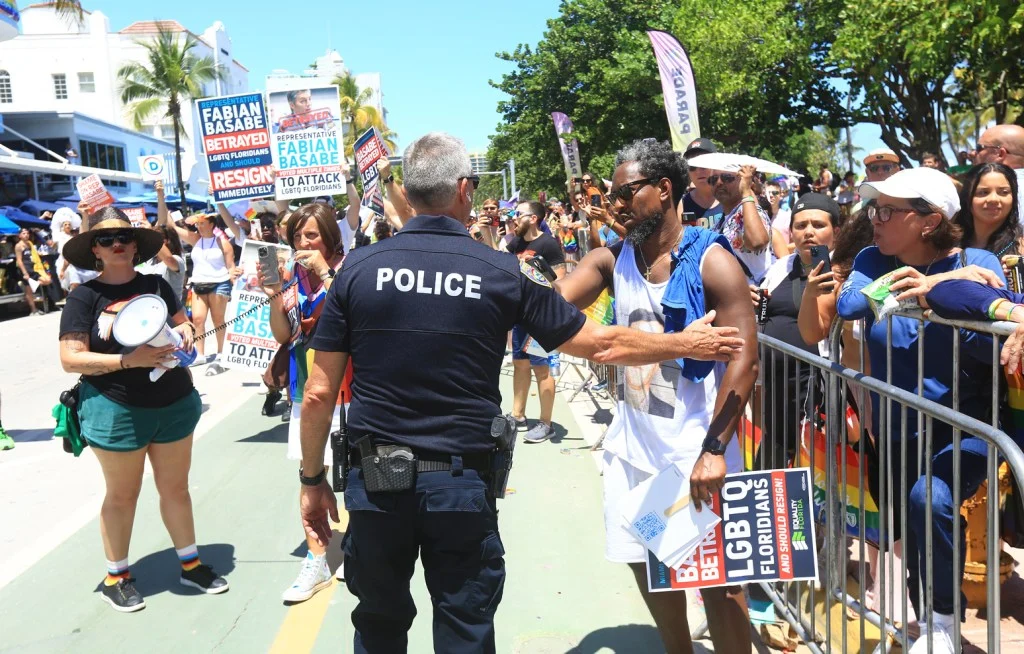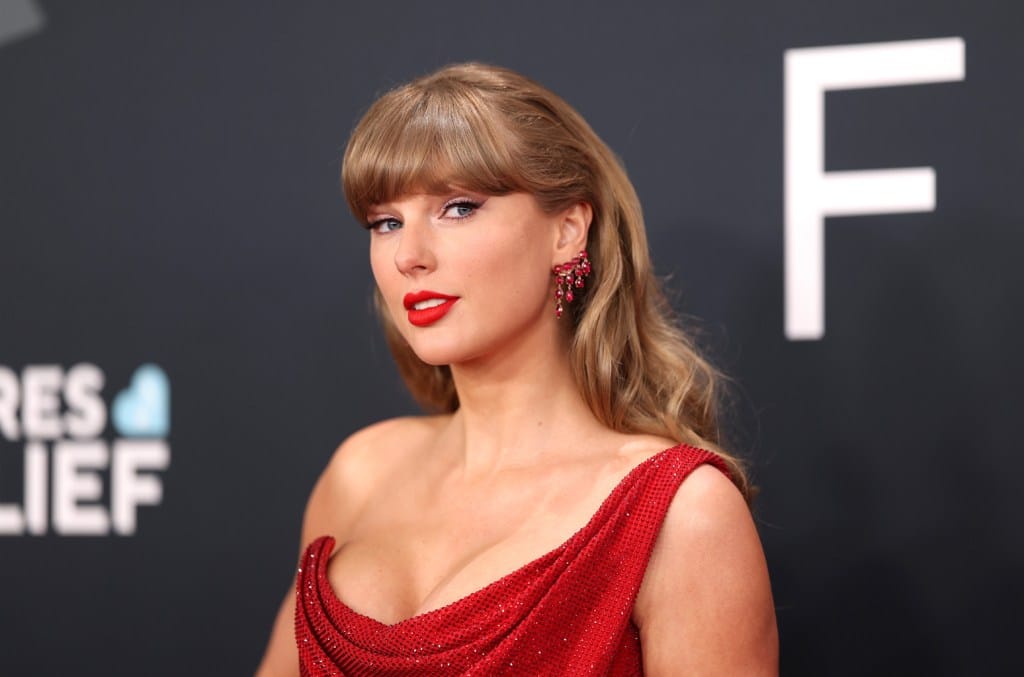Legal News
Page: 18
A group of legal scholars say Drake’s lawsuit against Universal Music Group over Kendrick Lamar’s “Not Like Us” is “dangerous” because it will have a “chilling effect” on hip-hop and encourage prosecutors to use rap lyrics as evidence in criminal cases.
Filed in January, Drake’s case claims that UMG defamed him by releasing Lamar’s scathing diss track, which tarred the Canadian rapper as a “certified pedophile.” He says that millions of people took that lyric literally, severely harming his reputation.
But in a legal brief filed in the case on Wednesday, a group of professors from the University of California, Irvine School of Law say that Drake’s argument is “not just faulty—it is dangerous.”
Trending on Billboard
“Drake’s complaint rests on the assumption that every word of ‘Not Like Us’ should be taken literally, as a factual representation,” professors Charis E. Kubrin, Jack Lerner, Adam Dunbar and Kyle Winnen write in the court filing. “[We] urge this court to recognize the danger that assumption poses.”
Diss track lyrics are a creative artform that are understood by listeners not as “factual arguments or a series of news reports,” the professors write, but as “hyperbole, bluster, and demonstrations of disrespect” that are “designed to entertain and impress their audience.”
The professors warn that the consequences of endorsing Drake’s literal interpretation of Kendrick’s lyrics would extend far beyond his case – including to the long-controversial practice of using lyrics as evidence in criminal cases against rappers.
“When courts ignore rap music’s history and artistic conventions, the effect is to deny rap the status of art and instead to flatten lyrics into literal confessions or statements of specific intent,” write the UCI professors. “This problematic treatment has introduced racial bias and unfair prejudice in countless criminal cases [and] has created a demonstrable chilling effect across the industry.”
The use of rap music as criminal evidence has been widely criticized, both because it threatens the right to free speech and can sway jurors by tapping into racial bias. One empirical study – authored by Kubrin and Dunbar – found that listeners who viewed violent song lyrics responded more negatively if they believed they came from a rap track than if they were told the exact same lyrics came from a country or heavy metal song.
Over the past few years, the practice has drawn backlash from the music industry and led to efforts by lawmakers to stop it, including a landmark California statute. But it has persisted in high-profile instances – including Young Thug’s gang case in Atlanta and briefly in Lil Durk’s federal murder-for-hire case.
Moving to dismiss Drake’s lawsuit, UMG has argued that Lamar’s lyrics are “rhetorical hyperbole” — the kind of statement that might sound bad but cannot actually be proven false. Since defamation only covers false assertions of fact, statements of hyperbole can’t form the basis for such cases.
In making that argument, UMG has pointed to Drake’s own public support for a 2022 petition criticizing prosecutors for using rap lyrics as evidence in criminal cases. That letter, also signed by Megan Thee Stallion, 21 Savage and many other stars, criticized prosecutors for treating lyrics as literal statements of fact.
“As Drake recognized, when it comes to rap, ‘the final work is a product of the artist’s vision and imagination,’” UMG’s lawyers write. “Drake was right then and is wrong now.”
A rep for Drake’s legal team did not immediately return a request for comment on the arguments made by the professors.
Sean “Diddy” Combs’ ex-girlfriend Cassie Ventura wrapped up her direct testimony against the rap mogul on Wednesday (May 14), telling jurors that Combs threatened to blow up Kid Cudi’s car and revealing the dollar amount of a bombshell settlement that set off the sex-trafficking probe.
Ventura, an R&B singer who dated Combs on and off for 11 years, is the star witness in Combs’ criminal trial. She’s been on the witness stand since Tuesday (May 13), testifying that Combs physically abused her and forced her to have sex with male escorts during drug-fueled events known as “freak offs.”
In her final day of direct testimony, Ventura reportedly told the jury that Combs became enraged when he discovered she was dating Cudi (Scott Mescudi) in 2011, according to The New York Times, which also reported that Ventura testified that Combs lunged at her with a wine opener and threatened to release freak off videos and hurt both her and Mescudi.
Ventura also said that Combs threatened to blow up Mescudi’s car, the Times reports, and that she soon broke things off with Mescudi out of fear.
“Too much danger, too much uncertainty of what could happen if we continued to see each other,” Ventura reportedly testified.
Ventura alleged in a November 2023 civil lawsuit that Mescudi’s car did, in fact, explode in his driveway a short while after Combs’ threats. Combs has not been officially linked to the incident.
Ventura’s civil lawsuit, the first major public accusation against Combs, was also a key topic during her final day of direct testimony. Though Combs settled with Ventura after a single day, the case sparked the criminal probe that led to the current trial and a deluge of other civil sex abuse lawsuits against Combs.
The dollar amount of Ventura’s settlement was kept confidential and long unknown to the public. But according to the Times, Ventura revealed for the first time during her testimony Wednesday that the settlement amounted to $20 million.
Ventura is scheduled to undergo cross-examination by Combs’ lawyers starting Thursday (May 15). The trial could last up to two months total.

Justin Baldoni’s lawyers claim Blake Lively asked Taylor Swift to delete text messages and used “extortionate threats” to try to get a statement of support from the pop superstar in the It Ends With Us legal battle — accusations, attributed to an anonymous source, that Lively’s lawyers say is “categorically false.”
The salacious allegations come in a court filing Wednesday (May 14) from attorney Bryan Freedman, who represents Baldoni and his production company Wayfarer Studios in litigation with Lively over dueling claims that include allegations of sexual harassment, retaliation and defamation.
On Monday (May 12), Swift’s longtime lawyers at the firm Venable told a judge that Baldoni sent them a subpoena for no good reason. Now, Freedman claims he actually does have a good reason: he wants to dig into accusations from an unnamed source that Lively tried to engage in “witness tampering and evidence spoliation” to get Swift on her side in the case.
Trending on Billboard
“The Wayfarer parties’ counsel are informed and believe, based on information from a source who is highly likely to have reliable information, that (i) Ms. Lively requested that Taylor Swift delete their text messages; (ii) Michael Gottlieb of Willkie Farr, counsel for the Lively defendants, contacted a Venable attorney who represents Ms. Swift and demanded that Ms. Swift release a statement of support for Ms. Lively, intimating that, if Ms. Swift refused to do so, private text messages of a personal nature in Ms. Lively’s possession would be released,” writes Freedman.
“The Wayfarer parties’ counsel are further informed and believe that a representative of Ms. Swift addressed these inappropriate and apparently extortionate threats in at least one written communication transmitted to Mr. Gottlieb,” Freedman continues. “It is those communications that the Wayfarer parties seek to obtain by way of subpoena, as they would evidence an attempt to intimidate and coerce a percipient witness in this litigation.”
Freedman’s letter does not identify his anonymous source or explain how this person allegedly came to know about Lively and her attorney Michael Gottlieb‘s communications, nor does it cite any evidence. Freedman did not immediately return a request for more details.
Gottlieb quickly released a fiery statement denying the claims on Wednesday.
“This is categorically false,” Gottlieb writes. “We unequivocally deny all of these so-called allegations, which are cowardly sourced to supposed anonymous sources, and completely untethered from reality. This is what we have come to expect from the Wayfarer parties’ lawyers, who appear to love nothing more than shooting first, without any evidence, and with no care for the people they are harming in the process.”
Gottlieb adds that his team “will imminently file motions with the court to hold these attorneys accountable for their misconduct here.”
Reps for Swift did not immediately return a request for comment Wednesday. Swift’s camp previously criticized Baldoni for trying to drag her into the dispute, saying she had no involvement in It Ends With Us and that her name was being thrown around to “draw public interest by creating tabloid clickbait instead of focusing on the facts of the case.”
Lively alleges in the case that Baldoni, her co-star and director on the movie released last summer, sexually harassed her on set and then orchestrated a public relations smear campaign to retaliate against her after she complained.
Swift was brought into the fray when Baldoni countersued Lively for defamation and claimed that the actress leveraged her relationship with a “megacelebrity friend,” presumed to be Swift, to bully her way into more control of It Ends With Us.
Baldoni’s legal filing includes text messages concerning an alleged meeting attended by “Ryan and Taylor,” seemingly referencing Swift and Lively’s husband, Ryan Reynolds. In one message sent by Lively, the actress called Swift and Reynolds her “most trusted partners” and compared them to the “dragons” in the show Game of Thrones.
“The message could not have been clearer,” Baldoni’s lawyers wrote in the countersuit. “Baldoni was not just dealing with Lively. He was also facing Lively’s ‘dragons,’ two of the most influential and wealthy celebrities in the world, who were not afraid to make things very difficult for him.”

THE BIG STORY: A little under 18 months after sexual abuse allegations against Sean “Diddy” Combs were first made public – and 8 months after he was indicted over them – the once-powerful rap mogul headed to trial this week on felony charges that could put him behind bars for life.
When things got underway in the courtroom Monday, I was sitting just rows behind the now-gray-haired superstar as prosecutors accused him of years of criminal conduct – centered on claims that he coerced longtime girlfriend Cassie Ventura and other women to take part in drug-fueled, marathon sex sessions with male escorts called “freak offs.”
The start the trial, which is expected to run for eight weeks, was something of a circus. News crews filled the plaza outside the courthouse in Lower Manhattan as a line of spectators wrapped around the block – so many that they eventually filled the entire large courtroom and two overflow rooms. Professional “line sitters” were charging $350 for a spot closer to the door; one person waiting in line, there at the crack of dawn, told me that he didn’t want to miss the “trial of the century.”
Trending on Billboard
To catch up after the first two days of the trial, go check all of Billboard’s coverage:
–On day one, both sides made their opening statements to the jury. Prosecutors said Combs had used his power for decades to “feed his every desire” — and they almost immediately played an infamous video of him assaulting Cassie in a Los Angeles hotel. Defense attorneys, meanwhile, said the women had consensually partaken in Diddy’s “swinger lifestyle” and that the star cannot be convicted merely based on weird sex, a “toxic relationship,” or even domestic violence: “We take full responsibility that there was domestic violence. Domestic violence is not sex trafficking.”
–On day two, Ventura took the stand. The star witness in the prosecution’s case, Cassie told jurors that participating in “freak off” sex performances “became a job” for her and left her feeling “humiliated.” But she said she felt she had no choice — at times because she was in love with Combs and wanted to please him, but also, later, because she feared blackmail, physical violence or other blowback: “He was a scary person. He would be violent.”
If you need a general catch-up on the Diddy case before the trial goes any further, go read our explainer on everything you need to know – or our deep-dive analysis in which the prosecutors from R. Kelly’s highly-similar case explain how this one might go. You can also read about the many, many lawyers involved in the Diddy debacle.
This is The Legal Beat, a weekly newsletter about music law from Billboard Pro, offering you a one-stop cheat sheet of big new cases, important rulings and all the fun stuff in between.
Other top stories this week…
TAYLOR GETS SUBPOENAED – Taylor Swift was hit with a subpoena formally dragging her into the legal drama between her friend Blake Lively and Lively’s It Ends With Us director and co-star Justin Baldoni. The subpoena, filed by Baldoni’s lawyers, is certain to be opposed by Swift’s lawyers after her reps blasted the filing: “This document subpoena is designed to use Taylor Swift’s name to draw public interest by creating tabloid clickbait instead of focusing on the facts of the case.”
HER LAWYERS, TOO – Speaking of Taylor’s lawyers: Her longtime outside law firm, Venable, was also hit with a subpoena from Baldoni’s attorney. The filing specifically name-drops Douglas Baldridge, a Venable partner who’s worked with Swift since 2013 and recently returned to the firm after a stint as her general counsel. In legal filings this week, the firm formally opposed a filing that it described as a “fishing expedition” by Baldoni and his lawyers: “Venable had nothing to do with the film at issue or any of the claims or defenses asserted in the underlying lawsuit.”
LIL DURK DENIED BAIL – Days after federal prosecutors dropped Lil Durk’s rap lyrics from his murder-for-hire case, his lawyers argued that the new “watered-down” charges dramatically weakened the case against him and supported his push to be released from jail ahead of trial. But a federal judge then refused to release him, citing a report that Durk has been using other inmates’ jailhouse phone calls, thereby showing a “disrespect for the rules.”
HALLE RESTRAINING ORDER – A Los Angeles judge granted a restraining order to Halle Bailey against DDG, her ex-boyfriend and the father of her 1-year-old son, after she claimed that he had attacked her multiple times. In legal filings seeking the order, Bailey alleged that in one incident, her ex (Darryl Dwayne Granberry Jr.) pulled her hair, slammed her face on the steering wheel and chipped her tooth.
DRAKE v. UMG UPDATE – Weeks after Drake updated his libel lawsuit against UMG to add gripes about Kendrick Lamar’s Super Bowl performance of “Not Like Us,” the music giant again asked a judge to dismiss the entire case. In doing so, UMG’s lawyers said the new claims about the halftime show are what the case is really about: “Drake’s attack on the commercial and creative success of the rap artist who defeated him, rather than the content of Lamar’s lyrics.”
SMOKEY ROBINSON ALLEGATIONS – The legendary Motown singer and his wife were hit with an explosive new lawsuit, seeking $50 million in damages over claims that he repeatedly raped four housekeepers over nearly two decades. Robinson’s lawyers strenuously denied the claims, calling them “vile, false allegations” and “an ugly method of trying to extract money from an 85-year-old American icon.”
BAD BUNNY COPYRIGHT CASE – The reggaeton superstar was sued for infringement over allegations that a track from his chart-topping Un Verano Sin Ti (“Enséñame a Bailar”) featured an unlicensed sample from a song called “Empty My Pocket” by a Nigerian artist named Dera. The lawsuit claims the issue was raised with Bunny’s reps, but that they’ve “turned a blind eye” and “stonewalled” efforts to properly clear the sample.
ANOTHER SAMPLE DISPUTE – British singer-songwriter Bakar and his viral track “Hell N Back” – featured in millions of TikTok videos – were hit with a messy new lawsuit over the song’s prominent use of a sample from Robert Parker’s 1967 R&B track “I Caught You In A Lie.” The case claims Bakar and Sony Music cleared the sample, but did so with the wrong rightsholders who have been making “false claim of ownership” to Parker’s song.
DATA BREACH AT iHEART – iHeartMedia was hit with a proposed class action from subscribers after publicly disclosing that several of its radio stations were hacked months ago, exposing Social Security numbers, financial information and other personal details. The company says it “immediately implemented our response protocols” to contain the hack, but attorneys for the subscribers say iHeart waited four months to tell subscribers about it.
LIVE NATION AT SCOTUS – Live Nation asked the U.S. Supreme Court to overturn a ruling last year that said the concert giant couldn’t enforce “opaque and unfair” arbitration agreements against ticketbuyers. That ruling – a scathing critique of Live Nation’s approach – showed improper “judicial hostility,” Live Nation warned the justices, and will create “massive uncertainty” over how such clauses can be used and enforced.
(DIDN’T) GET THEM TO THE GREEK – The Grammy-winning band The Kingston Trio sued a Los Angeles music attorney for fraud, claiming that he lied about having an “inside track” to book the folk group at the Greek Theatre last summer. The group says the lawyer, David A. Helfant, charged them high fees but didn’t actually have any secret mojo to get them booked at the legendary venue. Helfant denied the allegations, saying they were “completely without merit.”
FLORIDA DRAG LAW ICED – A federal appeals court has upheld an injunction blocking the state of Florida from enforcing a law signed by Governor Ron DeSantis that would restrict drag shows in the state, ruling that the statute likely violates the First Amendment’s protection of free speech: “The act wields a shotgun when the First Amendment allows a scalpel at most,” the court wrote.
WEEZER WIFE CHARGED – Author Jillian Lauren, the wife of Weezer bassist Scott Shriner, was officially charged with two felony counts following a bizarre shootout with police at her Los Angeles home last month. The charges are serious (discharge of a firearm with gross negligence and assault with a semiautomatic firearm) but less than she initially faced when booked on suspicion of attempted murder following the April 8 altercation.
Halle Bailey has been granted a restraining order against DDG, her ex-boyfriend and the father of her 1-year-old son, Billboard can confirm.
TMZ was first to report Tuesday (May 13) that the 25-year-old singer/actress had filed a police report against the 27-year-old streamer and rapper and requested court-ordered protection, claiming he had attacked her multiple times.
In court documents obtained by Billboard, Bailey alleged “things got physical” starting in January, when DDG (real name Darryl Dwayne Granberry Jr.) came over to pick up their then-13-month-old son Halo and she initiated a conversation about scheduling his visits.
Bailey claims that as she was buckling Halo into his car seat in the back of Granberry’s car, he yelled, “Get out of my car, bi—.” At that point, she alleges, Halo started crying, making her nervous to leave the baby with him in his agitated state. When she stayed in the car, she alleges that Granberry pulled her hair, slammed her face on the steering wheel and chipped her tooth. After they arrived at Granberry’s family’s house, Bailey says she told his family what happened and left the baby with them.
Trending on Billboard
Bailey attached photos of her alleged injuries, including her chipped tooth, to the restraining order request.
In the docs, Bailey went on to detail two more alleged incidents of abuse: one in March, which she says she filed a police report over, and one this past weekend, when she says Granberry accused her of vacationing with Brent Faiyaz in a series of texts while she was on a Mother’s Day trip with their son and her mother.
Granberry announced the couple had split in October 2024, ending their two-year relationship.
“This decision was not easy, but we believe it’s the best path forward for both of us. I cherish the time we’ve spent together and the love we’ve shared,” he wrote on his Instagram Story at the time. The following month, Bailey shared in a since-deleted X post that she felt “extremely upset” when Granberry brought Halo with him during an “unapproved” appearance on Kai Cenat’s live stream. She later backpedaled, writing, “maybe i did overreact…. i know that halo is always safe with his dad. i just don’t like finding out with the rest of the world what my baby is doing.”
Shortly after those tweets, Granberry came to Bailey’s defense in a YouTube video in which he implored negative commenters to leave her alone, citing her transparency over her struggles with postpartum depression. “When situations like this happen, I try to handle it with as much grace as possible because Halo needs her. I need her,” he said at the time. “We need each other to try to create a childhood that’s safe, fun and memorable for him.” But in March, Granberry aired his grievances over their custody issues in a song titled “Don’t Take My Son.”
In the restraining order request, Bailey also requested permission to take Halo with her while she travels to Italy to film a movie, where she will have family and a traveling nanny to help care for him. She also asked the judge for a cease-and-desist order to prevent Granberry from “posting and/or streaming on any and all platforms about Halo and/or me. He is a YouTube and Twitch Blogger and creates a fan frenzy by making false claims about me. This has caused me to feel afraid and victimized. His fans then threaten me. I am often scared for my life and Halo’s safety.”
A hearing has been set for June 4 over whether a more permanent restraining order should be put in place.
Representatives for Bailey and Granberry did not immediately respond to Billboard‘s requests for comment.
Author Jillian Lauren, the wife of Weezer bassist Scott Shriner, has been officially charged with two felony counts following a bizarre shootout with police at her Los Angeles home in April. Lauren, whose full name is Jillian Lauren Shriner, pled not guilty during a Tuesday (May 13) court hearing to the charges: discharge of a […]
A federal appeals court has kept in place an injunction blocking Florida from enforcing a law that would restrict drag shows in the state, saying the statute likely interferes with First Amendment-protected free speech.
In a lengthy opinion released Tuesday (May 13), two out of three judges on a panel for the Eleventh Circuit Court of Appeals upheld a district court injunction that bars Florida from enforcing its so-called Protection of Children Act. The statute aimed to prohibit children from attending “lewd” live performances at restaurants and bars, with Governor Ron DeSantis and state lawmakers singling out drag shows in public statements on the law.
A Florida federal judge sided with restaurant chain Hamburger Mary’s in 2023, finding that the law is overly broad and thus tramples on free speech. And in Tuesday’s ruling, two appellate judges — Robin S. Rosenbaum and Nancy G. Abudu — agreed.
Trending on Billboard
“By providing only vague guidance as to which performances it prohibits, the act wields a shotgun when the First Amendment allows a scalpel at most,” wrote Judge Rosenbaum for the majority.
Tuesday’s ruling means the 2023 injunction will remain in effect for now, and Florida cannot enforce this law while the Hamburger Mary’s lawsuit continues. Discovery has concluded in the case, though a trial date has not been set.
“Obviously, we’re thrilled that the injunction is going to remain in place for the duration of this litigation,” Melissa Stewart, an attorney for Hamburger Mary’s, tells Billboard. “That means that the citizens of Florida will have their First Amendment rights while we finish litigating this case.”
Representatives for the state of Florida did not immediately return requests for comment.
First Amendment law allows governments to restrict “obscene” speech, but only when that speech encompasses “patently offensive” sexual material that appeals to a “prurient interest” and lacks serious artistic or political value.
The Eleventh Circuit majority says that because the Florida law targets an undefined mass of “lewd” shows, it could be used to squash all kinds of constitutionally-protected speech that does not meet the strict “obscenity” standard.
The opinion notes, for example, that a Florida enforcement agency previously revoked one venue’s liquor license after deeming “lewd” a performance in which a drag artist known as “Jimbo” mimicked giving birth to a pile of baloney.
The majority says that while Jimbo’s performance is a “bit odd (and hammy in every sense of the word),” it “cannot be deemed ‘obscene.’”
“One of the act’s sponsors’ stated intent to target ‘Drag Queen Story Time’ also helps show the potential breadth of a term like ‘lewd conduct,’” Judge Rosenbaum wrote. “Of course, one legislator’s interpretation of the act does not an authoritative construction make. But it does betray how much protected speech may fall within the act’s [scope].”
Judge Gerald Bard Tjoflat of the Eleventh Circuit disagreed, writing in a dissent that the majority opinion is wrong because it “reads the statute in the broadest possible way.”
Even if Florida’s statute is unclear, Judge Tjoflat continued, the proper remedy would be to ask the Florida Supreme Court to step in and offer an analysis rather than block enforcement completely.
Florida is among a number of red states that have enacted legislation restricting drag performances in recent years. A similar Tennessee law was also blocked by a judge in 2023, though the Sixth Circuit Court of Appeals reinstated it a year later.

Sean “Diddy” Combs’ ex-girlfriend Cassie Ventura took the witness stand Tuesday (May 13) at the rap mogul’s sex trafficking trial, telling jurors that Combs “controlled a lot of my life” and subjected her to repeated “physical abuse.”
Ventura, an R&B singer who dated Combs for 11 years, is at the very center of the case against him — in which prosecutors say the superstar used his music empire “feed his every desire,” including by forcing Ventura and other women to have sex with male escorts — events allegedly known as “freak offs.”
Just a day after the trial began, Ventura took the witness stand to tell jurors she felt she had no choice but to participate in those sexual encounters — at times because she was in love with Combs and wanted to please him, but also because she feared blackmail, physical violence and other blowback.
“Sean controlled a lot of my life, whether it was career, the way I dressed — everything,” Ventura, visibly pregnant with her third child, testified. “I just didn’t have much say in it at the time.”
Sometimes emotional, Ventura testified that “violent arguments” with Combs “too often” led to “physical abuse” that included him punching, kicking and dragging her. She also offered more details about the freak offs, including that some lasted days: “The freak offs became a job,” she said, “where there wasn’t any space to do anything else but to recover and just try to feel like normal again.”
Combs was indicted in September, charged with running a sprawling criminal operation aimed at facilitating the elaborate freak offs, in which Combs and others would allegedly ply Ventura and other victims with drugs and then coerce them into having sex with escorts while he masturbated. Prosecutors also claim the star and his associates used violence, money and blackmail to keep victims silent and under his control.
It was Ventura’s civil lawsuit, filed in November 2023, that first raised those allegations against Diddy. Her case, which accused the star of rape and years of physical abuse, was quickly settled with a large payment from Combs, but it sparked a flood of additional suits from other alleged victims and set into motion the criminal probe that led to his indictment.
Once one of the music industry’s most powerful men, Combs is formally accused in the case of racketeering conspiracy (a so-called RICO charge), sex trafficking and violating a federal prostitution statute. If convicted on all of the charges, he faces a potential life prison sentence.
The trial, expected to last two months, kicked off Monday (May 12) with opening statements, during which prosecutors told jurors that Combs and his associates used “coercive and criminal” conduct to make the freak offs happen: “For twenty years, the defendant, with the help of his trusted inner circle, committed crime after crime,” prosecutor Emily A. Johnson told the jury. Prosecutors also quickly played a 2016 surveillance video of Combs beating Ventura at a Los Angeles hotel.
When it was their turn, defense attorneys told jurors that Ventura and other victims had consensually taken part in the sex parties. They admitted that Diddy committed domestic violence during “toxic” relationships with the women and that he certainly had unusual sexual preferences, but said those did not amount to racketeering or sex trafficking: “Sean Combs is a complicated man, but this is not a complicated case,” said defense attorney Teny Geragos.
Following Tuesday morning’s testimony, Ventura is expected to testify more in the afternoon and for several days after that. When prosecutors are finished questioning her, Combs’ attorneys will have a chance to cross-examine her. They will likely seek to cast doubt on her credibility and portray her as a willing participant in the freak offs.
After Ventura’s testimony is complete, prosecutors will continue to call other witnesses, including a second alleged freak off victim identified by the pseudonym “Jane” and an alleged employee victim identified by the pseudonym “Mia.”
Taylor Swift’s longtime lawyers are asking a court to throw out a subpoena they were served by Justin Baldoni in his feud with Blake Lively over the movie It Ends With Us, just a few days after Swift’s own reps slammed Baldoni for targeting the pop star with a similar subpoena.
The Washington, D.C.-based law firm Venable, which has represented Swift for more than a decade, revealed in a Monday (May 12) motion that Baldoni’s lawyers served it with a subpoena on April 29 seeking all communications between the firm on one side and Lively, the actress’ husband Ryan Reynolds and/or their attorney Michael Gottlieb on the other.
The subpoena specifically name-drops Douglas Baldridge, a Venable partner who’s worked with Swift since 2013 and recently returned to the firm after a stint as general counsel at her company, 13 Management.
Trending on Billboard
“Venable had nothing to do with the film at issue or any of the claims or defenses asserted in the underlying lawsuit,” wrote the firm in a so-called motion to quash, which, if granted, would throw out the document request. “There is no reason for this subpoena other than to distract from the facts of the case and impose undue burden and expense on a non-party.”
The law firm described Baldoni’s subpoena as a “fishing expedition,” noting that “even if Venable were somehow involved (again, it is not),” the documents that Baldoni seeks should be sourced from Lively and Reynolds themselves. The actor power couple is supporting Venable in its quest to throw out Baldoni’s subpoena, calling it an “abuse of the discovery process” in a court filing on Tuesday (May 13).
Revelations of the Venable subpoena come just a few days after Swift’s representatives confirmed that she, too, had been served with a document request in the Baldoni-Lively feud. Mirroring the language in Venable’s motion, a representative for Swift said she had no involvement in It Ends With Us and slammed the subpoena as “designed to use Taylor Swift’s name to draw public interest by creating tabloid clickbait instead of focusing on the facts of the case.”Venable did not immediately return a request for comment, nor did reps for Swift, Lively, Reynolds or Baldoni.
The It Ends With Us legal battle began when Lively launched bombshell claims in December, alleging that Baldoni, her co-star and director on the movie released last summer, sexually harassed her on set and then orchestrated a public relations smear campaign to retaliate against her after she complained.
Baldoni vehemently denied the claims and countersued Lively for defamation and other wrongdoing in January. Baldoni’s suit said Lively leveraged her close relationship with a “megacelebrity friend,” presumed to be Swift, to take control of the movie.
The Baldoni filing includes text messages concerning an alleged meeting attended by “Ryan and Taylor,” seemingly referencing Reynolds and Swift. In one message sent by Lively, the actress called Swift and Reynolds her “most trusted partners” and compared them to the “dragons” in the show Game of Thrones.
“The message could not have been clearer,” Baldoni’s lawyers wrote in the countersuit. “Baldoni was not just dealing with Lively. He was also facing Lively’s ‘dragons,’ two of the most influential and wealthy celebrities in the world, who were not afraid to make things very difficult for him.”

A modern iteration of Grammy-winning band The Kingston Trio is suing a Los Angeles music attorney for fraud, saying he lied about having an “inside track” to book the folk group at the Greek Theatre last summer.
The lawsuit was filed in California federal court on Friday (May 9) by Trident Concert Productions LLC, a concert promotion company for the lineup that performs as The Kingston Trio following the death of all the legendary folk band’s original members.
The new Kingston Trio claims it retained music lawyer David A. Helfant back in 2023 to help the group secure concert dates at Los Angeles’ famed Greek Theatre the following summer. According to the lawsuit, Helfant promised that he had an “inside track” for booking acts at the venue.
Trending on Billboard
“Helfant did not have expertise or the inside track or any superior knowledge about how to secure concert dates at the Greek Theater,” writes the group’s current attorney, Konrad L. Trope. “Instead, Helfant created an overinflated bill, along with convincing Trident that it needed to retain a former Greek Theatergeneral manager who could provide inside access.”
The group claims Helfant fraudulently convinced them to pay a hefty $650 per hour billing rate, plus $10,000 to a consultant who supposedly could help “grease the wheels” at the Greek Theatre.
In reality, says The Kingston Trio, neither Helfant nor his consultant had any “inside track.” But that didn’t even matter; according to the group, the Greek Theatre actually has a transparent booking protocol that allows anybody to bid for dates online.
The group was eventually able to secure two August 2024 dates at the Greek Theater using this public bidding system. But the group claims Helfant’s misdeeds delayed the booking process significantly, giving them only seven months to promote the shows.
“Helfant did not help, but rather hindered plaintiff’s efforts,” the lawsuit says.
To make matters worse, the group claims Helfant also spent precious hours pitching his other clients to work as cinematographers on a concert documentary that was to be filmed during the shows, but the pitches lacked proper disclosures about the regulations around private film investors, the lawsuit alleges.
The Kingston Trio is suing Helfant for breach of contract and fraud and asking for at least $250,000 in damages.
Reached for comment on Monday (May 12), Helfant tells Billboard that the allegations in the lawsuit are “are completely without merit.”
“I am confident that when the facts come to light in this action, I will prevail,” says Helfant.
The Kingston Trio, established by Bob Shane, Dave Guard and Nick Reynolds in San Francisco in the 1950s, charted 17 folk songs on the Billboard Hot 100 and won two Grammy Awards for its No. 1 hit, “Tom Dooley.”
All three original members of The Kingston Trio have died, with Shane the last to pass away in 2020. The group continues to perform under a new lineup that’s currently made up of Mike Marvin, Tim Gorelangton and Buddy Woodward.

 State Champ Radio
State Champ Radio 






